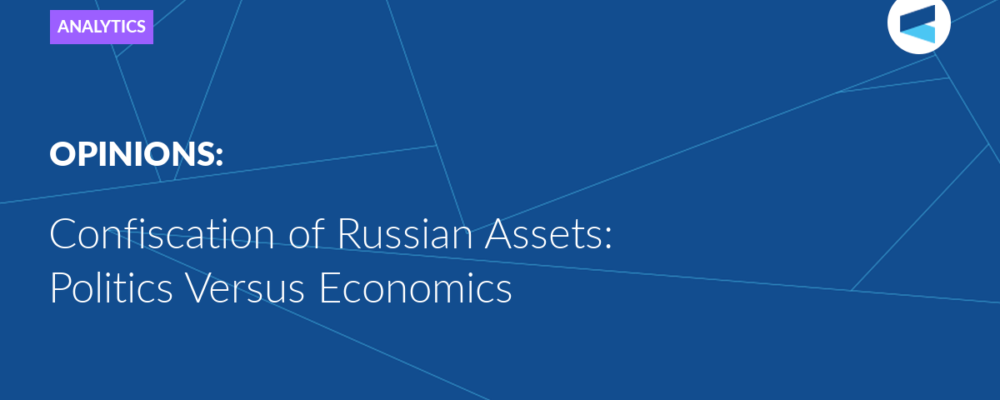BRICS membership would significantly increase Turkey’s international authority and prestige. The country would be able to actively participate in the development of global economic and political strategies, offering its ideas and formulas for solving global problems, write Igbal Adil Oglu Guliyev and Murad Sadygzade.
In early September 2024, Turkey once again attracted the attention of the world media by officially submitting an application to join BRICS. Earlier in June of this year, Turkish Foreign Minister Hakan Fidan, while on a visit to China, confirmed the country’s desire to join this economic bloc. He noted that Turkey sees potential in expanding international cooperation through BRICS, considering this as an opportunity to strengthen its economic ties and political influence on the world stage.
Turkey has long been interested in BRICS membership. Back in 2018, President Recep Tayyip Erdogan had already expressed similar intentions, but events in the international arena delayed the process until 2024.
On September 4, Russian presidential aide Yuri Ushakov confirmed that Turkey had submitted an official application for full BRICS membership. He said that Turkey’s accession would be considered at the BRICS summit in Kazan in October this year, along with applications from other countries. This could be a significant step for Turkey in its quest to develop new international alliances, expanding beyond its traditional Western partners. According to Bloomberg, Turkey hopes to strengthen its influence and establish ties with such countries as Russia, China, and India, especially amid cooling relations with the EU and the US. At the same time, the European Union, while recognising Turkey’s right to take such steps, expressed hope that the country would adhere to its obligations as an EU candidate.
Why should Ankara be in BRICS?
Turkey has shown significant interest in joining BRICS, viewing it as an important step towards strengthening its international influence and economic potential. This desire is driven by several key factors related to economic, political and geostrategic aspects.
As one of the largest economies in the region, Turkey seeks to diversify its economic ties and strengthen cooperation with rapidly developing countries. BRICS membership would open up for Ankara access to a huge market and opportunities for increased trade and investment with the leading economies of the developing world. This is especially important in the context of global economic challenges and uncertainties, when partner diversification is becoming a key factor for sustainable growth.
Turkey has faced financial difficulties and restrictions, imposed by Western financial institutions such as the International Monetary Fund (IMF) and the World Bank. BRICS membership would give Turkey access to the New Development Bank, which would allow it to receive financing on more favourable terms and with fewer political commitments. This is especially relevant for Turkey, which seeks to maintain its economic independence and minimize external pressure.
Turkey actively supports the idea of a multipolar world in which the balance of power is more equally distributed among different regions and countries. BRICS, which advocates multipolarity and fair global governance, is an attractive platform for Turkey, which seeks to strengthen its political independence from Western countries and blocs such as the European Union and NATO.
It is also worth noting that Ankara views its aspirations for BRICS membership as a kind of signal to the European Union, which Turkey had previously sought to join. This has been confirmed by the words of Turkish Foreign Minister Hakan Fidan, who noted during the visit to China that some European countries are preventing Turkey from joining the EU, and therefore the authorities view BRICS as an alternative platform for integration. “We cannot ignore the fact that BRICS, as an important platform for cooperation, offers other countries a good alternative… We see potential in BRICS,” Fidan explained.
Turkey’s geographical location makes it an important link between Europe, Asia and the Middle East. Membership in BRICS would strengthen Turkey’s geopolitical position and allow it to effectively use its strategic location to advance its interests and strengthen ties with other member countries. This would also contribute to increasing Turkey’s role in regional and global security issues.
BRICS membership would significantly increase Turkey’s international authority and prestige. The country would be able to actively participate in the development of global economic and political strategies, offering its ideas and formulas for solving global problems. This would strengthen Turkey’s position on the world stage and contribute to its more active participation in international organizations and forums.
“Flying to the Light”: BRICS Energy
Turkey’s membership in BRICS also opens up significant energy prospects that could contribute to its economic development and strengthen its influence in the energy sector.
BRICS brings together countries such as Russia, China and India, which are among the largest energy players in the world. Membership in this bloc will allow Turkey to strengthen energy ties with these countries, which is especially important in the context of its growing energy needs. In particular, cooperation with Russia in the supply of natural gas could become even closer. Turkey already plays a key role in the transit of gas from Russia through the TurkStream project, which could serve as the basis for new energy initiatives.
China, a leader in the production of equipment for renewable energy, can offer Turkey technology for the development of green energy. Recently, Turkey has been actively developing solar and wind energy, and access to Chinese investments and technology can accelerate this process. Within the BRICS, Turkey could receive investments through the New Development Bank, which actively finances projects in the field of sustainable development, including renewable energy.
Membership in BRICS will allow Turkey to participate in major international infrastructure projects related to energy, such as the creation of pipelines and energy hubs. For example, Russia and China are considering the construction of new gas pipelines to South Asia and Europe; Turkey, due to its strategic location, could become an important transportation hub for these projects. This will strengthen its position as a key player in the global energy infrastructure.
An important benefit of Turkey’s participation in BRICS will be the possibility of financing energy projects through institutions such as the New Development Bank (NDB) and the Reserve Fund, which will help the country reduce its dependence on Western financial institutions such as the IMF and the World Bank. This is especially relevant in the context of sanctions and political disagreements with the West.
With Iran and Saudi Arabia joining BRICS, new opportunities are opening up for energy cooperation with these countries, which are the largest oil producers in the world. Turkey could use its geopolitical position to strengthen cooperation with them in the field of energy and hydrocarbon supplies, which will provide it with stable energy flows and access to resources.
Thus, the energy benefits of Turkey’s BRICS membership include increased access to energy markets, new renewable energy technologies, the financing of infrastructure projects, and strengthening its role as an energy transit hub. This will allow Turkey to better exploit its strategic and geographical advantages in the international arena.
Obstacles to Turkey’s BRICS Membership
Despite the significant benefits that Turkey’s BRICS membership could bring, there are significant obstacles that complicate the process. These include domestic politics, economic difficulties, and external pressure from the West.
The political situation in Turkey poses significant challenges to its BRICS membership. In the latest municipal elections on March 31, the ruling Justice and Development Party (AKP), led by President Recep Tayyip Erdogan, suffered its first defeat in 22 years in a number of key cities. The Republican People’s Party (CHP), which traditionally has a pro-Western stance, won in 35 cities, while the AKP won in only 24.
The CHP’s victory signals a shift in Ankara’s political vector towards the West. Even within the AKP, there are advocates for closer ties with the West, making the decision on joining BRICS more difficult. Vatan Party Deputy Chairman Hakan Topkurulu said Turkey should join BRICS, but acknowledged the presence of strong pro-Western groups linked to Turkey’s membership in NATO since 1952. These groups are present in all political parties and exert significant influence on the government, creating an internal conflict between Atlanticist and Eurasian forces.
Turkey has close military and economic ties with Western countries, which makes the issue of joining BRICS even more complicated. Turkey’s decision to join BRICS could cause strong pressure from Washington and its Western allies, who view BRICS as a threat to their dominance in the international arena. This could manifest itself in the form of sanctions, economic restrictions and political pressure, which would negatively affect the Turkish economy and international relations.
Turkey’s economic situation also poses a serious obstacle to joining BRICS. The country is experiencing an economic crisis, and high inflation is forcing the authorities to seek investment. Turkey currently relies more on the West in this matter, since the BRICS countries are emerging economies themselves and cannot offer such significant investment.
Although the BRICS countries have great economic potential, they also face internal economic problems, which could limit their ability to provide the necessary financial support to Turkey. This makes BRICS membership less attractive for Ankara in the short term, especially from an economic perspective.
BRICS as the core of a new world order
Turkey is aware that BRICS is emerging as the core of a new world order, and its membership in this group provides Ankara with unique opportunities to strengthen its position in the international arena. In the context of growing confrontation between the countries of the global majority and the West, BRICS is becoming an alternative to groups such as the G7, offering a new perspective on global governance and cooperation. While the G7 traditionally represents the interests of economically developed countries, BRICS focuses on the problems of developing countries, which creates a more equitable and balanced system of interactions in the international arena.
The economic power of BRICS, which includes the largest emerging economies in the world, makes it an attractive partner for Turkey. Collectively, the BRICS countries have significant resources and potential for economic growth, which already exceeds similar G7 indicators in a number of parameters, including the share of world GDP and population. Turkey’s membership in the bloc will allow it to reduce its dependence on Western markets and financial institutions such as the IMF and the World Bank, and to gain access to alternative sources of financing through the New Development Bank and other BRICS instruments.
BRICS membership will also give Turkey the opportunity to develop its foreign policy more independently from the West. In recent years, international tensions and the dominance of Western countries, especially under the leadership of Washington, have led to active discussions about the need to revise the global order. BRICS, which advocates the idea of a multipolar world, offers an alternative in which Turkey can play a more significant role without being bound by obligations to the West or NATO.
In addition, Turkey’s geopolitical position at the crossroads of Europe, Asia, and the Middle East makes it an important bridge between the regions. BRICS membership will allow Turkey to use this advantage to strengthen cooperation with countries such as China, Russia, and India, which will further strengthen its position in global politics and reduce its dependence on Western military and economic alliances.
Despite the potential benefits of joining BRICS, Turkey faces a number of serious obstacles. Internal political realities, including the influence of pro-Western forces and internal divisions, pose significant challenges to the decision to join. External pressure from the West and close economic ties with Western countries further complicate the process. Finally, the economic challenges Turkey faces make Western investment more attractive than the prospects associated with BRICS.
However, in the long term, BRICS membership opens up new opportunities for Turkey. In the context of the transformation of the global order, it may allow Ankara to strengthen its position in the future. Turkey will carefully weigh the pros and cons, seeking to extract the maximum benefit for itself. Therefore, it will not be surprising if the Turkish authorities decide to join BRICS, which is in line with Erdogan’s paradigm of pursuing a sovereign foreign policy in the interests of his country.
The Valdai Discussion Club was established in 2004. It is named after Lake Valdai, which is located close to Veliky Novgorod, where the Club’s first meeting took place.
Please visit the firm link to site






